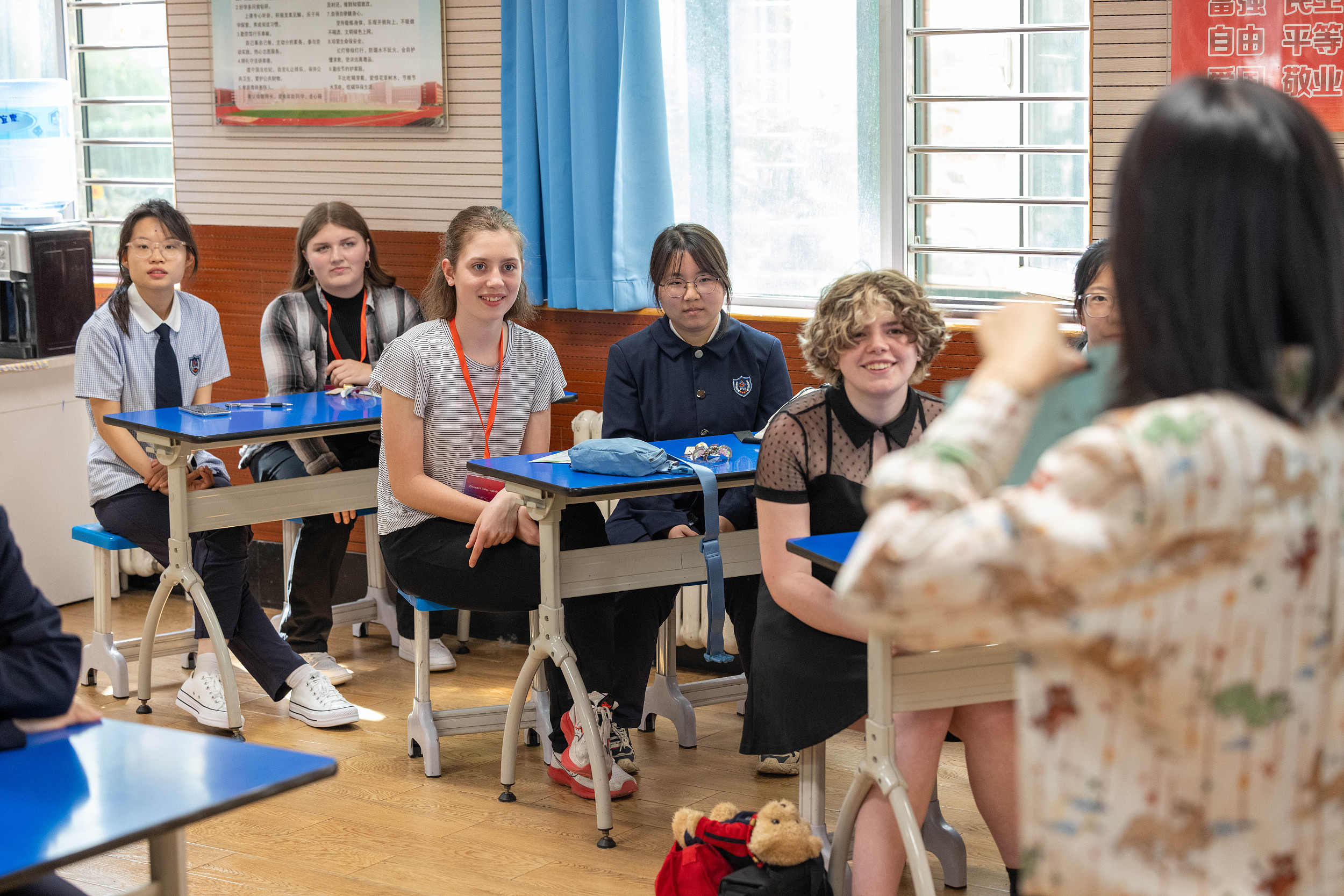Why American Students Should Consider Studying in China
By?John Quelch

Students of Muscatine High School take classes?at?Shijiazhuang?Foreign?Language?School?at Shijiazhuang Foreign Language School in Shijiazhuang, north China's Hebei province, April 20, 2024..?(PHOTO:?XINHUA)
One possible avenue for improving relations between China and the U.S. is through the exchange of students.
Such exchanges give future leaders a better understanding and appreciation for the need to cooperate on the world stage, whether it is in addressing global security, environmental degradation, pandemics, or other pressing issues of our time.
In his meeting with U.S. President Joe Biden in San Francisco last November, Chinese President Xi Jinping said China was prepared to invite 50,000 Americans to study in China over the next five years.
As the executive vice chancellor of Duke Kunshan University (DKU), an English-speaking, research-oriented liberal arts and sciences institution just outside of Shanghai, I am familiar with the power that such exchanges can have.
Take, for example, the case of Peter Ballentine, who had many college options from which to choose when he graduated from a North Carolina high school in 2018. All but one of the universities he visited were in the United States. The exception was DKU, which at the time was accepting applicants to its first class of undergraduates.
"The only university that truly stuck out was DKU," Ballentine later wrote in an article. "From the get-go, DKU was different."
He and his classmates and professors collaborated on everything from the school's culture to its curriculum. "Everyone wanted to see the university succeed, and everyone wanted to work together to make that happen," Ballentine wrote.
Like so many of his classmates, Ballentine flourished. DKU boasts of a truly global campus community, where 30 percent of the student body is international. (At most other universities, international students make up between 10 and 20 percent of all students.) At DKU, Ballentine made friends with peers from around the world, which provided him with valuable skills on how to cross cultural boundaries when collaborating with others. His work with a research team at Duke earned him an award from the U.S. National Science Foundation Graduate Research Fellowship Program that is now funding his studies at Columbia University for a Ph.D. in electrical engineering.
Ballentine is not alone in choosing this path, but he is certainly in the minority when comparing the number of American students studying in China (about 10,000) versus the number of Chinese students in the U.S. (about 300,000.) And that has been the situation for over a decade, according to the Open Door reports released by the Institute of International Education and the U.S. State Department.
There is an imbalance, which is the Chinese students and future leaders of their country know much more about the U.S. than Americans know about China.
Getting more Americans to live and study in China, where there are a number of great universities, is one way for Americans to understand China better and address the distrust that seemingly exists between these two great countries. I have seen such a transformation time and time again.
In merely 40 years, China has grown from a developing country into the world's second largest economy; this makes a perfect case study for anyone interested in a global-oriented career. And China has a fascinating, proud history and culture. Many cities and provinces are launching outreach programs for American students to come to China for study tours. For example, DKU is working with Jiangsu province in east China for a one-week immersion program for American college students this August. This will include visits to the historic cities of Nanjing and Suzhou as well as Shanghai.
Universities like DKU allow American students to get a Western-style education in China. While there, in addition to honing their analytical and critical thinking skills, they will develop global mindsets, meet like-minded peers, be versed in both languages and cultures, learn to work with others from diverse backgrounds, and be better prepared to succeed in our increasingly complex global society.
I do worry about the political rhetoric in the 2024 U.S. presidential election campaign. Throughout history, every nation blames its problems on "foreigners." But I also believe that younger Americans, many of whom are regular users of TikTok, are more open-minded to learning more about China. People-to-people exchanges are the best path for this to occur, and the best hope for global peace, stability and prosperity.
Dr. John Quelch is the executive vice chancellor of Duke Kunshan University, a joint venture between Duke University in the United States and Wuhan University in China.






